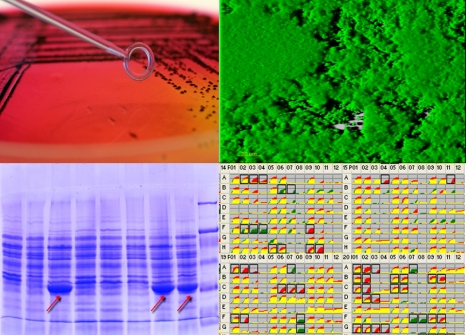
The application of molecular biology to fundamental research uses techniques such as (clockwise) classical culture based methods, imaging bacteria in situ, phenotype characterisation and analysis of protein expression in addition to omics technologies.